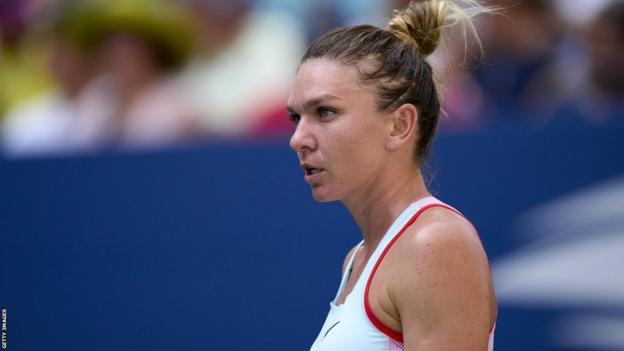Two-time Grand Slam champion Simona Halep has been banned for four years for breaches of the Tennis Anti-Doping Programme.
An independent tribunal determined the 31-year-old Romanian had committed “intentional” anti-doping violations.
Halep has always denied knowingly taking the banned substance Roxadustat.
She faced two charges: one for testing positive for Roxadustat and another for irregularities in her athlete biological passport.
The written reasons behind Halep’s ban were released on Thursday. BBC Sport takes a look at the report’s main findings.
What has Halep done?
Former world number one Halep tested positive for Roxadustat at the US Open in August 2022, leading to one of the most high-profile doping cases tennis has seen.
Roxadustat is used medically to treat anaemia – an iron deficiency which can cause fatigue.
The drug increases both the number of red blood cells and the amount of haemoglobin – a protein that carries oxygen in your body – found in those cells.
And having more oxygen in your body helps improve endurance and recovery.
She was given a provisional suspension when the failed test was announced in October 2022.
Halep said she had ingested Roxadustat unknowingly, arguing it was caused by contamination of a collagen supplement.
In May this year, a second charge was added after irregularities were found in her athlete biological passport (ABP).
The ABP programme collects and compares biological data to spot discrepancies in an athlete’s blood over time that suggest possible doping.
Halep’s defence suggested the irregularities spotted were caused by factors including blood loss during an operation and periods when she was not training.
What did the report find?
The report produced by an independent panel spanned 126 pages in which the complexity of the case was laid bare.
The conclusions centred around the two key areas: the alleged contamination of Roxadustat and the discrepancies in Halep’s athlete blood passport.
The report concluded the collagen supplement taken by Halep – called Keto MCT – was contaminated with Roxadustat “on the balance of probability”.
However, it also concluded there was another source of Roxadustat in the sample provided by Halep at the US Open on 29 August last year.
“If Halep did use contaminated Keto MCT as she describes, it could not have been the sole source of the Roxadustat detected,” the report said.
Halep has “not been able to identify…
Click Here to Read the Full Original Article at BBC Sport – Tennis…






